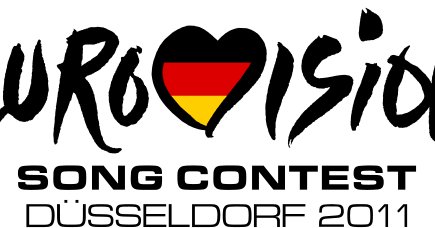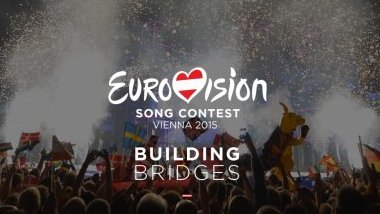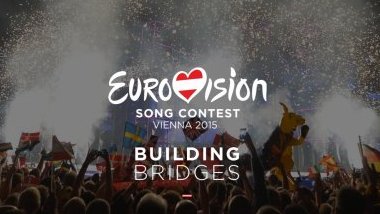On May 24, 2008, Egkomi suburb of Nicosia, the last divided capital of the European Union. While in training there, I was invited to spend the night clubbing. At the same time as the music of DJ, a big screen lived coverage of Eurovision. The French people watched idly, sometimes ironically commenting on the performance or scoring. The few present Cypriots seemed more absorbed: Greece was indeed a good chance of winning. This would ultimately be a victory for the Russian Dima Bilan.
This episode illustrates somehow the different relations the Europeans have towards this event: shunned in the West for its kitsch aspect, it seems to be taken more seriously elsewhere, even if sometimes derision (eg with the transformist Verka Serduchka for Ukraine in 2007) or the shift (the victory of the Finnish metal band Lordi in 2006) are used to attract votes. Eurovision is a show first and foremost, with costumes, glitter and choreography, sometimes unlikely, that have nothing to envy to other tele-programs. But this competition also witnessed the passage of singers who, for some, would experience a great career: ABBA, Julio Iglesias, Toto Cutugno, Celine Dion, Patricia Kaas ... And even if time is to pop, Eurovision follows music modes and we begin to see more rock songs, electronic accents, but also this year, hip-hop, with the Greek Loúkas Yórkas, or jazz, with the Italian Raphael Gualazzi.
The 120 million viewers who follow this pan-European event get their money and take the kitsch of the event, as well as the hundreds of researchers for whom Eurovision is also a subject of exciting research. Several themes are addressed in their work, as the issue of language, the regionalization of the vote and European identity, for those who are also interested in gender issues and Eurovision, this article should give them some useful inputs.
The Anglicization of Eurovision
The language issue has for a long time divided the contest organizers, some countries feeling aggrieved by the complexity of their own language, while Anglophone or Francophone seemed to be at an advantage. It remained possible, however, to sing in a regional language: thus France sent Patrick Fiori singing Mama Corsica in Corsica in 1993(and this year, another Corsican singer, Amaury Vassili, who represented France with Sognu) or Dan Ar Braz who represented the Hexagon in 1996 with his song in Breton Diwani Bugale.
In 1999, the European Broadcasting Union, which oversees the competition, restored the rule of freedom of the language that was the rule during the 1970s. Since this time, only a non-English song won the competition: Molitva by Marija Šerifović in 2007, which increases the controversy about the tendency to anglicization contest and the use of simple words. A critique taken very seriously in France, where the decision of the French representative Sebastien Tellier, in 2008, to sing in English, has sparked debates even in the Parliament!
Towards the end of “Eurovision of Eastern countries” and the regionalization of votes
Several researchers have studied the distribution of points in the Eurovision and notably the coalitions including some countries of a region, allowing them to be well placed, but not being a sufficient ingredient to explain the victory. The researcher Derek Gatherer has revealed a system of alliances, especially between countries of the Balkans and Scandinavia. However, these have evolved over time: some are temporary (such as the alliance France-United Kingdom in the late 1970s), others being almost constant (as between Cyprus and Greece).
This phenomenon of regionalization has been increased by the opening of public vote, authorized in the late 1990s. Several explanations have been advanced, such as the sharing of a common regional culture music. Another explanation is that through Eurovision, the people express political views on their neighbors. Thus, the zero received by the United Kingdom in 2003, beyond their musical performance, could be interpreted as a condemnation of the country’s involvement in Iraq by a European public opinion largely hostile to this intervention.
Evident in the case of Greece and Cyprus, who stroked the long dream of linking the island of Aphrodite to Athens and are trading at almost every contest the famous “twelve points”, the question arises about support to Serbia because of its old hegemonic ambitions in the region, and yet won the Eurovision in its first participation as an independent entity.
Since 2009, however, it was decided that the allocation of points by a country would depend for half of the vote of a professional jury and the other half of the public in order to delay the effect of regionalization of the vote, with sometimes surprising results: In 2010, French Jessie Matador owed his 12th place only through public voting (which ranked 8th, whereas 22nd by the jury of professionals), while conversely, the musical performance of the Israeli Harel Skaat, hailed the jury (5th) and awarded the Marcel-Bezençon Prize, was shunned by the public (19th): he finished 14th.
In addition, countries in the same block are separated in the two semifinals, with some success if one believes the results of this year: 4 Balkan countries have been eliminated (Albania, Croatia, Bulgaria, Macedonia ) as well as Turkey, yet subscribed to the first places thanks to its large diaspora.
Eurovision in search of European identity
How to talk about European identity, even for a pan-European event, whereas it is an art competition among nations, which could further encourage stereotypes? Because there is no incompatibility between European identity and identity in his/her country that the motto of the European Union, United in Diversity, already clearly expresses, even if standardization of language and music, or costumes, temperes national characteristics of the participants. Besides researchers Karen Fricker and Milija Gluhovic believe that Eurovision is also an arena where one wonders about the borders of Europe and the significance of belonging to the same set.
Eurovision is thus the oldest expressions of popular European cultural unity, which can involve all member countries of the European Broadcasting Union, which explains the presence of Israel or the Caucasus in the competition. It allows smaller countries to be known and compete on an equal footing with larger states in Europe, which explains their enthusiasm for this competition - you can listen to reports of Euranet on importance of Eurovision in Sweden and Lithuania.
If all Europeans are not able to cite the country’s capital of this year’s winner: Azerbaijan, Eurovision has the merit of changing the way they look at this very enlarged Europe, and give a better idea what Europe may mean. Germany, host of the tournament, has chosen to represent the trans-European character, spreading a short video showing a national representative of the country and living in Germany, each expressing in his own language the slogan of the 56th contest "Feel your heart beat! . But that has not stopped some other clumsy stereotypes: the French lover, the Icelandic lover of fish and the Moldavian window washer. If it had been eliminated in the semifinal, would Poland send a plumber as a representative?
However, the wall is still present in the head - it is ironic to note that this is Eastern Europe, the promptest one willing to join the European Union, which is also the most interested in the Eurovision. If they can claim their share of European identity, the door of their political institutions is often closed; it is particularly striking in the case of Turkey.
Eurovision is nevertheless one of the engines of European unity, a popular catalyst of European identity which is unfairly maligned,and which must be taken as what it is: a dynamic and quirky show, very useful at a time when we are talking again to create barriers at the borders of the Member States of the Union.




Follow the comments: |
|
